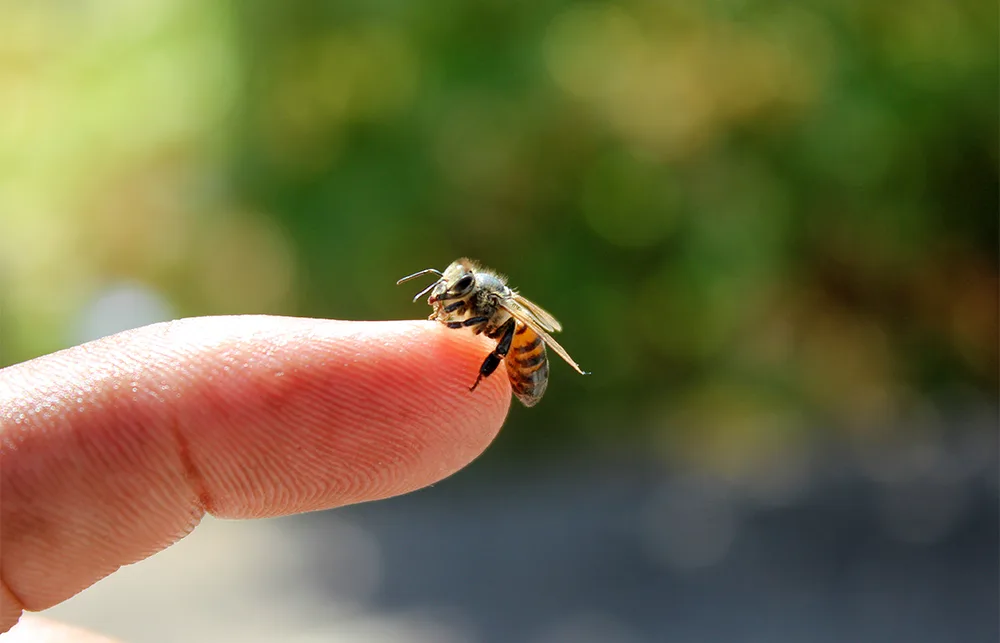From jade eggs to vampire repellents, Gwyneth Paltrow is practically president of the alternative-health-remedies-come-weirdest-beauty-hacks camp, and (unashamedly) we love her for it.
But while most of her recommendations are deemed pretty harmless (albeit often hilarious), one Goop-spruiked treatment is catching headlines right now for all the wrong reasons: bee acupuncture.
“It’s a thousands of years old treatment called apitherapy,” she previously explained in an interview with the New York Times. “People use it to get rid of inflammation and scarring. It’s actually pretty incredible if you research it, but man it is painful.”
So, here’s the thing; regular acupuncture – the traditional Chinese kind that sees patients have their skin pricked with sterilised needles – is super safe and widely praised for its various healing abilities. But substituting the needles with the stingers of live bees? Not so much.
In fact, as per a report published in the Journal of Investigational Allergology and Clinical Immunology, a Spanish woman recently died after having an allergic reaction to the procedure.
The 55-year-old had been receiving apitherapy monthly for over two years in an effort to ease her tight muscles and relieve stress, until in one session she “developed wheezing, dypsnea and sudden loss of consciousness.” She was taken to hospital where she was given adrenaline and antihistamines but died several weeks later after suffering from multiple organ failure.
It’s unclear exactly why things went wrong this particular time, but experts say her reaction isn’t out of the ordinary.

“In sensitised persons, venom compounds can act as allergens, causing the release of mast-cell mediators and a spectrum of allergic reactions that can range from mild, local swelling to severe systemic reactions, anaphylactic shock, or even death,” the authors of the report wrote. “Furthermore, repeated exposure to the allergen was found to carry a greater risk of severe allergic reactions than in the general population.”
“The risks of undergoing apitherapy may exceed the presumed benefits, leading us to conclude that this practice is both unsafe and unadvisable,” they concluded.
Sorry Gwynny, you’ve officially lost us on this one.
This article originally appeared on Women’s Health Australia.










